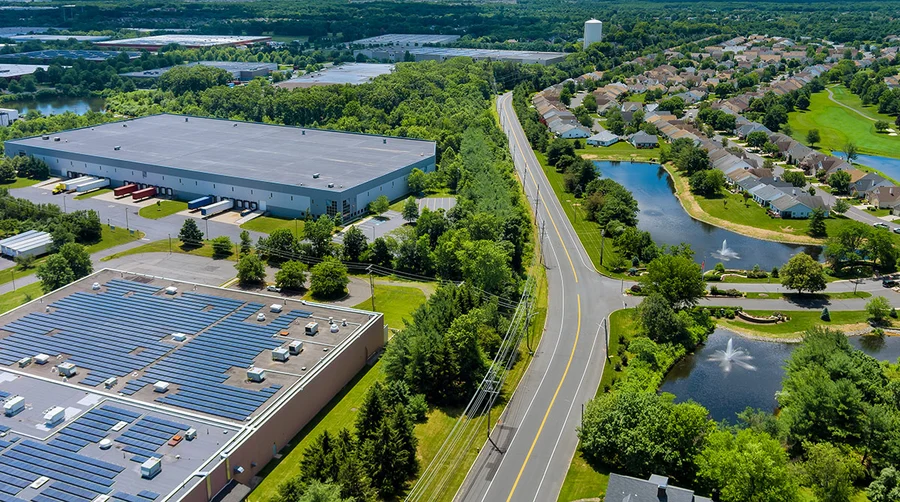The logistics industry in India is determined to make a conscious shift towards eco-friendly operations. While climate change serves as a constant reminder for change, it is also bolstered by regulatory initiatives and heightened consumer awareness. Green logistics solutions are inevitable yet strategic, generating impact and growth for businesses. A route that pioneering 3PL service providers deem critical for setting up their sustainable operations while maintaining efficiency.
Reimagining Logistics With The Green Warehousing Era
Greening the Warehousing Infrastructure
Modern-day warehouses rely on sustainable materials like low-carbon cement, bamboo, and recycled steel, thereby eliminating emissions from the ground up. From a design perspective, more eco-conscious thoughts are being put into space planning and construction. For instance, the layout is made in such a manner as to incorporate natural lighting and ventilation, directly lowering excessive energy consumption throughout the day. Furthermore, installing green roofs helps adjust indoor temperature and promotes conservation via rainwater harvesting.
Most warehouse service providers offer a model that treats sewage with in-house plants and recycles liquid discharge in a systematic method.
An Energy-Efficient Fix
Warehouses are significantly progressing towards an energy-smart undertaking. With instalments like motion sensors and LED lights, these smart systems enable improved management of everyday power usage. By skipping the unwanted electricity consumption, such adaptable lighting solutions help achieve sustainability.
Moreover, embracing energy-efficient HVAC (Heating, Ventilation & Air Conditioning) systems ensures ideal storage temperature. With reduced energy waste, these conditions maximise safety of sensitive cargo while lowering the operational cost. Green logistics initiatives also include self-reliant power setups like solar-powered warehouses. These contemporary models help reduce energy dependence and contribute towards stable warehousing operations.
Optimising Carbon Footprint via Tracking & Automation
Leading warehousing companies in India believe that technology has its fundamental part to play in curtailing energy usage and the generation of emissions. For instance, WMS (Warehouse Management Systems) powered by AI ease the movement of goods, lower electricity usage, and reduce storage time. Fuel-powered machines used for inventory movement are now being substituted by AGVs (Automated Guided Vehicles) and electric forklifts.
To add to these advancements, IoT-enabled platforms are a game-changer, consistently tracking and monitoring real-time electricity consumption, humidity, temperature, etc. These smart warehousing solutions go a long way in ensuring that the warehousing space acquires the ideal storage conditions.
Eco-friendly Packaging that Cuts Down Waste
Green warehouses around the world are heading towards a circular economy. Principles that revolve around the reuse and recycling of packaging. More and more warehouse service providers are opting for biodegradable materials for packaging while curbing single-use plastics. Some warehousing companies in India also go as far as to compost organic waste attained through their operations. It reflects a strong and sustainable waste disposal cycle.
Conclusion
Governing authorities and regulatory bodies are urging businesses to adopt sustainable logistics practices. However, this switch is far more beneficial than just meeting compliance requirements. By coming forward as a cost-efficient alternative, green warehouses are energy resilient and highly showcase a brand’s credibility to their eco-conscious consumers. While the perks of adopting green logistics are enormous, it is no longer merely an option. Established warehousing solutions around the globe are allowing companies to step up towards a cleaner, greener, and efficient future. Seize this opportunity and proactively embrace a sustainable and better tomorrow.


